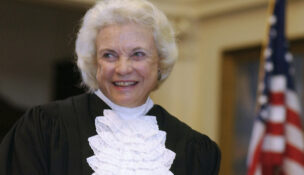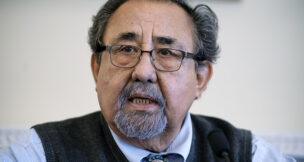Gender identity debate comes to Capitol in opposing bills
Howard Fischer, Capitol Media Services//January 2, 2020//
Gender identity debate comes to Capitol in opposing bills
Howard Fischer, Capitol Media Services//January 2, 2020//
A Green Valley lawmaker wants motorists to have more than the current either-or choice of “male” or “female” on state-issued driver’s licenses.
The proposal by Democrat Rosanna Gabaldon would permit a third choice of “nonbinary” for those who identify as not exclusively one or the other. Her HB 2075 would make the same option available for state-issued ID cards for those who do not drive.
“These individuals don’t recognize themselves as male or female,” she told Capitol Media Services. Gabaldon said her measure would simply recognize the identity of the people who hold the cards.

“I don’t see it as controversial,” she said.
But Gabaldon is facing not only the hurdle of getting a hearing for her legislation — prior efforts have fallen short — but also an active effort to legally preclude what she wants.
HB 2080, crafted by Rep. John Fillmore, R-Apache Junction, would bar any state agency, board, commission or department from issuing any document that has anything other than “male” or “female” as the individual’s sex.
That’s not all.
His HB 2081 would require that birth certificates have those two as the only options. And HB 2082 would bar schools from requiring teachers and others from using a sex or gender pronoun when referring to a study “other than the sex or gender pronoun that corresponds to the sex listed on that student’s birth certificate.”
“For thousands of years we’ve had two biological sexes and we haven’t had any problems,” Fillmore said in explaining his proposals to Capitol Media Services. “
“So now if you start introducing all of this other stuff you really muddy the waters up,” he continued. “And I don’t think it behooves society, the state of Arizona, and especially the school districts, to be dealing with this.”
What Gabaldon is proposing is not unique. At least 15 states have “nonbinary” as an option on driver’s licenses and ID cards, most recently Massachusetts which added the option in November.
Gabaldon said the issue goes beyond providing a choice for those who don’t identify either as male or female. She said adopting her legislation would send a message about the state.
“I want to see Arizona on the front lines of recognizing diversity,” Gabaldon explained. She said she hopes Arizona gets to a point, years from now — and after her legislation gets adopted — where people “would look at that and wonder why, in the past, why anyone would have a problem with that.”
Anyway, Gabaldon said, it’s only right to treat people as individuals — without forcing them in to one or the other category.
“I want them to live a life that they recognize,” she said. “And I don’t see why Arizona would have a problem with that.”

Fillmore said he has no issue with what adults do and how they identify themselves.
“If they’re adults and want to go those different ways, whatever, I don’t have any problem with that,” he said.
“I don’t have a problem with the LGBT community at all,” he said. “I look at it, when I was a kid, the big thing was what I do in my bedroom is my own business. They are absolutely correct.”
But he said it’s quite different where children are involved.
“We get little kids that are really unconcerned or unaware even of their own sexuality being told this stuff and taught this stuff,” he said. “It creates a lot more angst and anxiety in their end, I think, than is beneficial.”
The bottom line, said Fillmore, is that all of this discussion about gender identity, particularly in the education arena, takes away the focus from the primary goal of school.
“We’ve got to get back to 2 plus 2 is 4 and keep basic educational items to allow our kids to grow up and to function in society,” he said. “And all of this sexual stuff, I don’t think should be out there at all.”
Gabaldon also is sponsoring HB 2074 which would require that death certificates reflect the person’s “gender identity.”
Under current law, she said that death certificates do not recognize “the sex that they lived, the lives that they lived,” she said. “I want it to be reflective of their gender identity.”
Fillmore, for his part, seemed bemused by the proposal.
“After they’re dead, do they care?” he asked. But he acknowledged that this could be important to survivors.



















